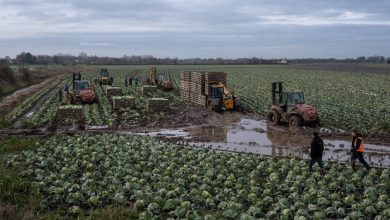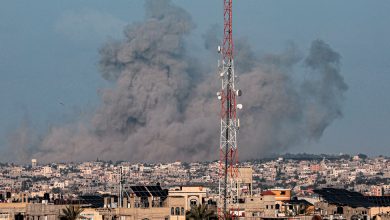Shelter in Chinatown Is Canceled After Community Protests

New York City has canceled one of three homeless shelters it planned to open in Chinatown, amid fierce resistance from Chinatown residents who fear that more homeless shelters will mean a further increase in anti-Asian hate crimes, many of which have been linked to homeless people.
The city will no longer open a shelter at 47 Madison Street, which would have housed 49 men. The cancellation comes two days after a community board in a different part of Chinatown passed a resolution asking the city not to open a shelter on Grand Street. That shelter is planned for a site around the corner from where a 35-year-old Chinese American woman was murdered in February.
The city’s decision to drop the Madison Street shelter appeared to be a concession to local complaints that Chinatown is already overburdened. Julia Savel, a spokeswoman for the Department of Homeless Services, said in a statement: “We have decided to re-site this shelter capacity to an area with fewer services and shelter for those experiencing unsheltered homelessness. Our goal is always to work with communities to understand their needs.”
All three planned shelters are of a specialized type known as safe havens or stabilization hotels, which are intended to appeal to people living on the streets. They typically offer more privacy and social services and fewer restrictions than traditional shelters, which can have upward of 20 people sleeping in one room.
The opposition in Chinatown to the shelters has presented a stiff challenge for Mayor Eric Adams, who has made opening more safe havens a centerpiece of his attempts to remove homeless people from the subways and street encampments where many take refuge. On Sunday he announced a proposal to open more than 900 additional beds in these kinds of shelters.
A Rise in Anti-Asian Attacks
- Swelling Violence: From New York to Atlanta, attacks against Asian Americans have surged across the United States.
- Few Hate Crime Charges: Recent violence against Asian-Americans has exposed difficult questions involved in proving a racist motive.
- Setting the Stage: On platforms like Telegram and 4chan, racist memes and anti-Asian posts increased the risk of real-world violence.
- The Aftermath of a Killing: The death of an 84-year-old man helped awaken the nation to a rise in anti-Asian violence. His family says the reckoning hasn’t gone far enough.
The city and supporters of the shelters have argued that drawing homeless people in off the street and connecting them to services will make neighborhoods safer, in addition to helping the shelter residents turn their lives around.
And both the city and Community Board 2, the board that covers 47 Madison Street, have said that there is a need for more safe havens in the neighborhood. Community Board 2, in its annual statement of needs to the city, had been asking for more safe havens for several years and had made the request a top budget priority.
The city’s justification for the facility’s location, which it was required to produce under a law that mandates spreading social service programs around equitably, cited the board’s request for more safe havens.
But the drumbeat of opposition in Chinatown has been loud and steady for months. At least 10 protests and rallies have been held against the shelters.
Susan Lee, the founder of the Alliance for Community Preservation and Betterment, which has fought the shelters, called the cancellation of 47 Madison Street, which was scheduled to open in 2024 on a site in the shadow of the Manhattan Bridge, “a step in the right direction.”
But Corinne Low, executive director of the Open Hearts Initiative, a group that works to build support for shelters, was critical of the city’s decision. “Caving to backlash will not placate opponents of housing and services for homeless New Yorkers — it will only embolden them,” she said in a statement.
The other two proposed shelters, on Grand Street and on the busy shopping strip of East Broadway, have drawn much more opposition, but they are much farther along. The Grand Street facility is scheduled to open this spring, and the East Broadway shelter next year.
The dropping of the Madison Street shelter also comes days after the city said it would close a Radisson Hotel facility in the Financial District that an advocacy group said houses about 200 people.





